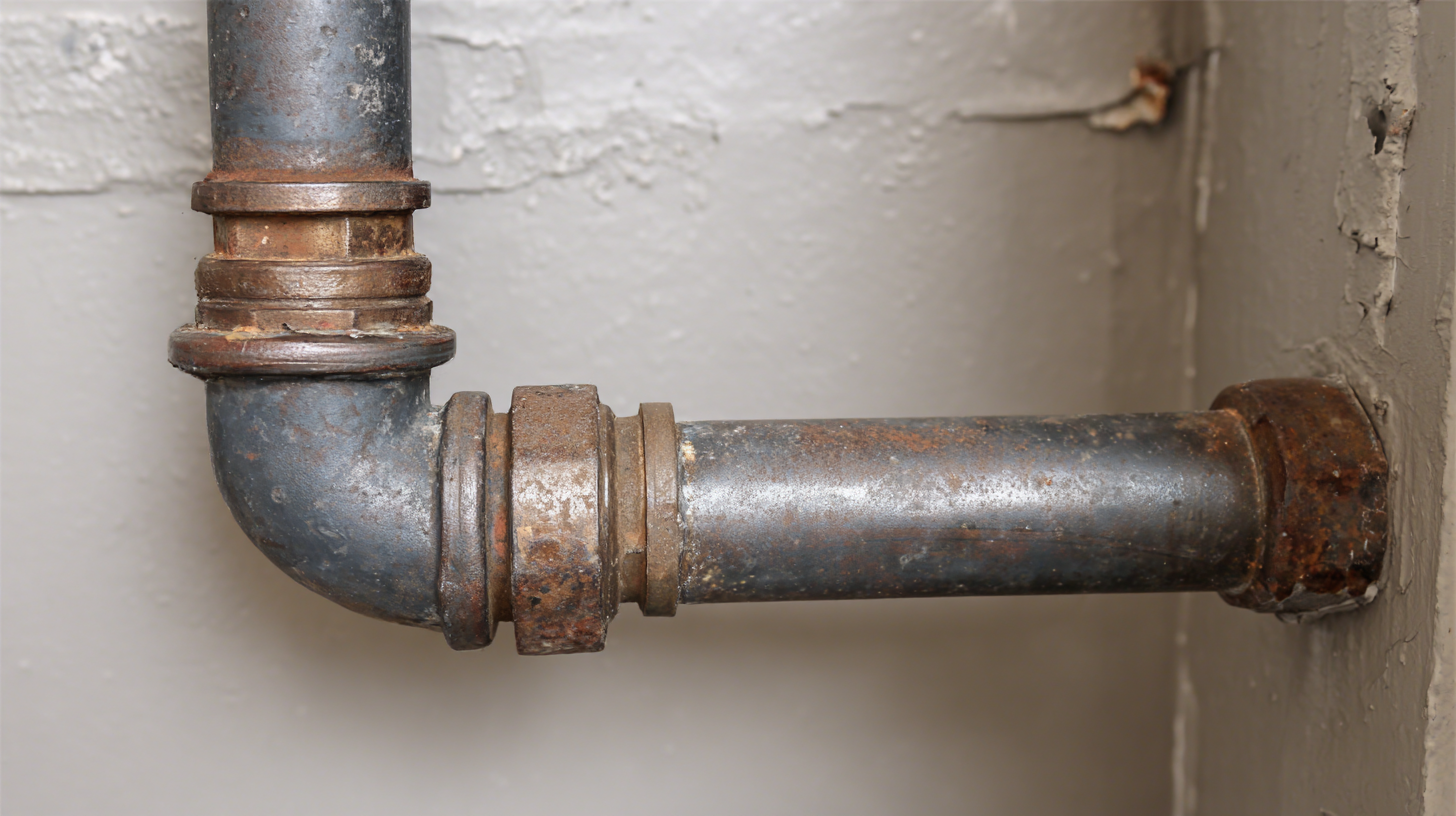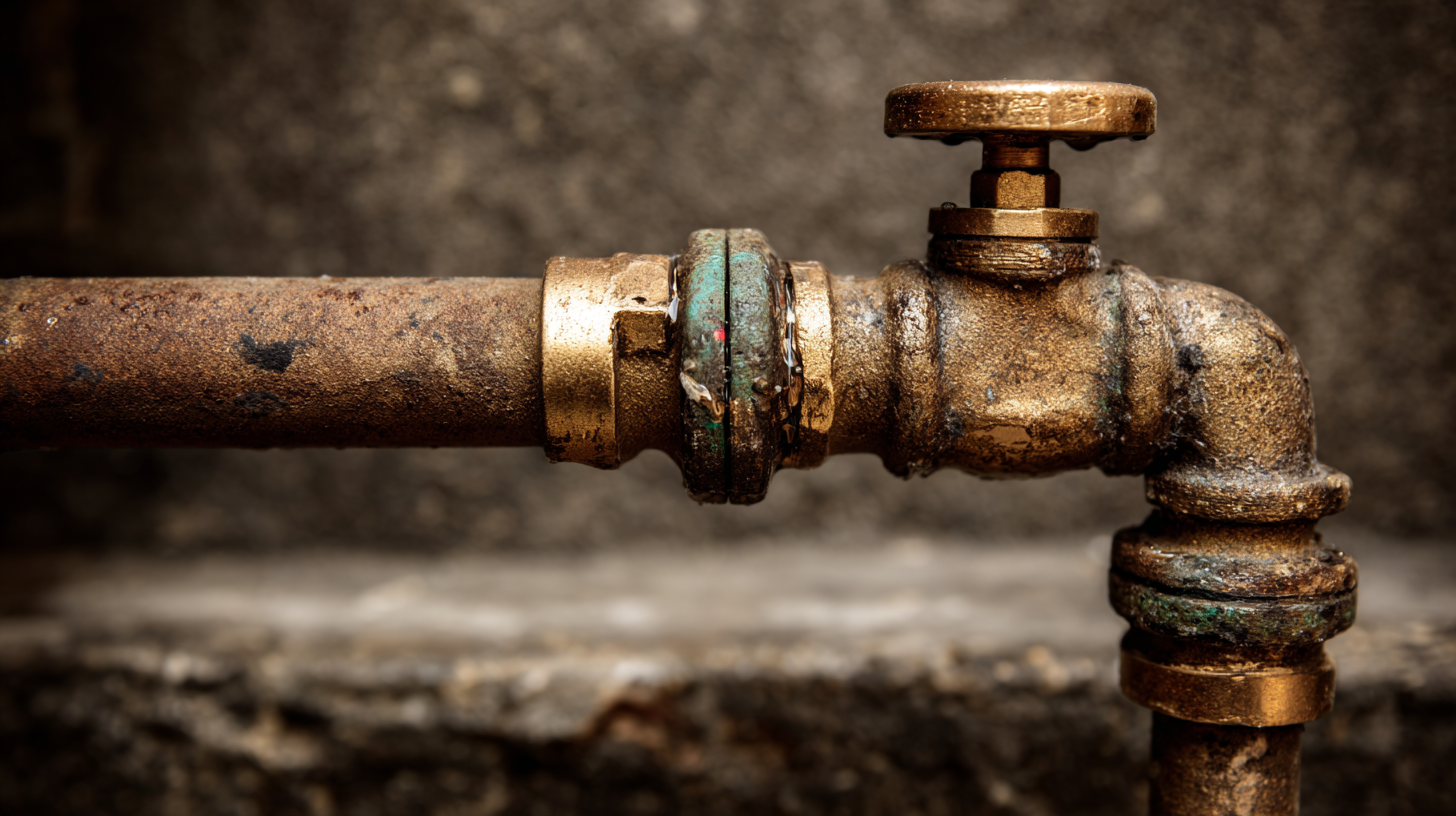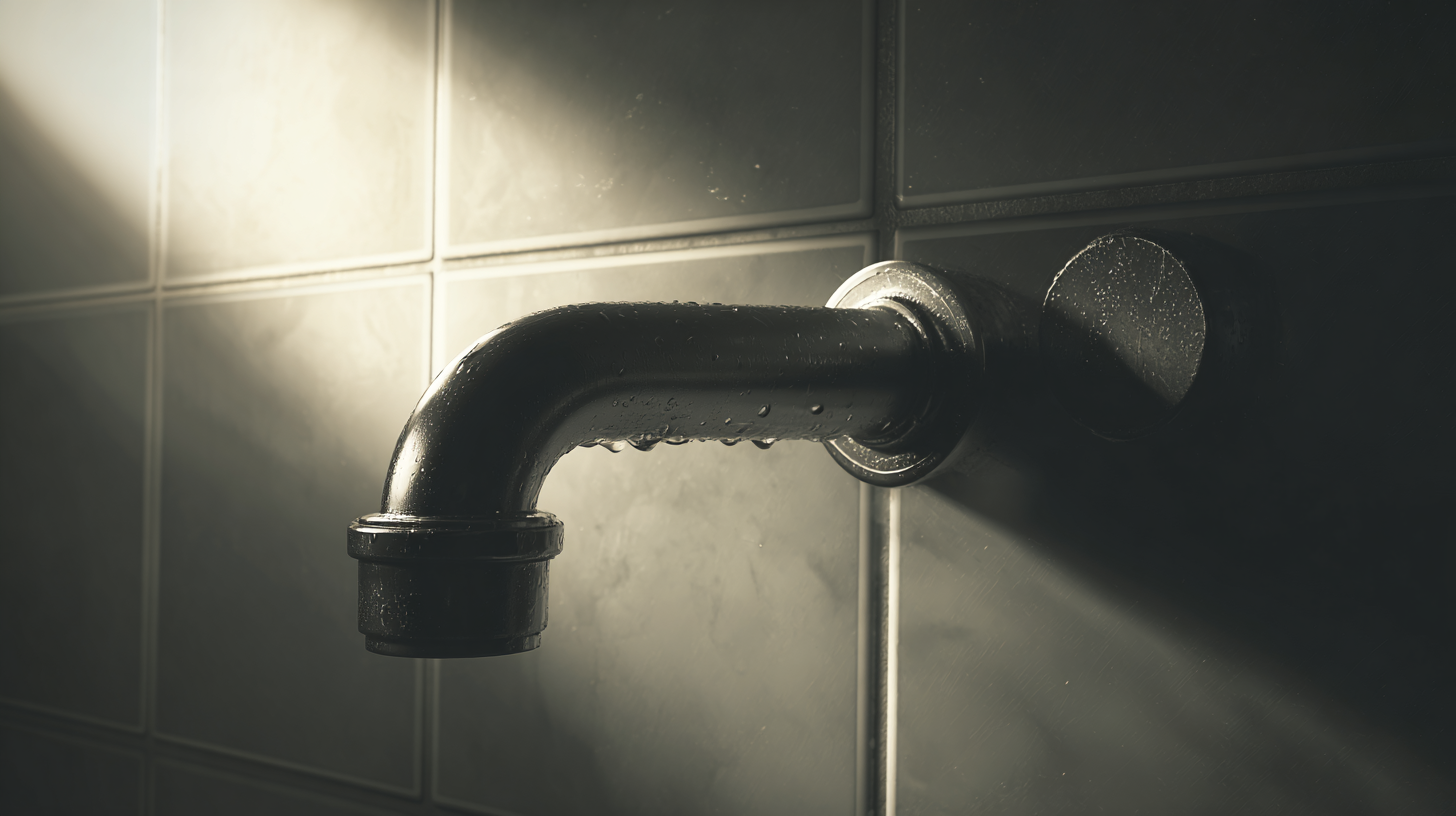
Made in America
Get Connected With



Email Us
sale@abrvpartsacc.com
Call Us
+1 (626) 448-2100
Made in America
Get Connected With




 Waste pipes are critical components of any home's plumbing system, yet they often do not receive the attention they require. According to the Environmental Protection Agency (EPA), improper maintenance of waste pipes can lead to significant issues, including clogs that contribute to unsanitary conditions and potential health risks. In fact, reports suggest that households can spend more than $400 annually on plumbing repairs due to neglecting basic waste pipe maintenance. Regular inspections and timely interventions can prevent serious problems, ensuring a cleaner and healthier living environment. This guide will explore essential maintenance tips for waste pipes, empowering homeowners to take proactive steps in safeguarding their homes from the costly repercussions of plumbing failures.
Waste pipes are critical components of any home's plumbing system, yet they often do not receive the attention they require. According to the Environmental Protection Agency (EPA), improper maintenance of waste pipes can lead to significant issues, including clogs that contribute to unsanitary conditions and potential health risks. In fact, reports suggest that households can spend more than $400 annually on plumbing repairs due to neglecting basic waste pipe maintenance. Regular inspections and timely interventions can prevent serious problems, ensuring a cleaner and healthier living environment. This guide will explore essential maintenance tips for waste pipes, empowering homeowners to take proactive steps in safeguarding their homes from the costly repercussions of plumbing failures.
Waste pipes play a crucial role in maintaining a clean and healthy home environment. Understanding the failure rates and causes of these systems is essential for homeowners. Statistically, nearly 20% of waste pipes experience significant issues within the first 10 years of installation, largely due to neglect and improper maintenance. Regular inspection and cleaning can prevent these premature failures, safeguarding your home from costly repairs and potential health hazards.

One of the leading causes of waste pipe failure is the accumulation of grease and debris. Homeowners should schedule biannual cleanings to reduce blockages. Additionally, consider using enzyme-based cleaners to break down organic matter naturally without harming your plumbing. Another critical statistic reveals that almost 30% of pipe failures are linked to external factors like tree root invasion. Planting trees away from your sewage lines is a proactive approach to mitigate this risk.
Moreover, outdated materials can significantly increase failure rates. Homes built with older piping systems often face more frequent issues. If your house is older, investing in an evaluation by a plumbing professional could save you from sudden failures. Regular maintenance checks, combined with awareness of these statistics and causes, can ensure a cleaner home environment while reducing the chances of waste pipe problems.
Proper maintenance of waste pipes is crucial for ensuring a clean and efficient home environment. Here are three key maintenance tips that can significantly reduce blockages and enhance flow efficiency.
First, regular inspection and cleaning of your waste pipes can prevent the buildup of debris. Consider using a mixture of baking soda and vinegar to naturally clean the pipes. This combination helps break down grease and organic matter, allowing for smoother water flow. Scheduling this cleaning monthly can help maintain optimal drainage.
Secondly, be mindful of what goes down your drains. Avoid disposing of fats, oils, and heavy food particles in the sink, as these substances can lead to significant clogs. Instead, use a strainer to catch food waste and dispose of it in compost or trash. Additionally, educating all household members about proper waste disposal practices can contribute to the longevity and efficiency of your plumbing system.
Lastly, consider the use of drain guards in sinks and tubs to capture hair and other debris before they enter the pipes. These simple devices can be easily removed and cleaned, ensuring that your waste pipes remain clear and functional. By implementing these maintenance tips, you can enjoy a smoother flow and reduce the likelihood of costly plumbing repairs.
When maintaining waste pipes, one of the most effective strategies is to be mindful of the household chemicals you use. Certain common products can be detrimental to the longevity of your waste plumbing, leading to clogs and corrosion. Here are some key chemicals you should avoid:
1. Drain Cleaners: While convenient, these caustic solutions can erode pipes and cause damage over time. Instead, consider using natural alternatives like baking soda and vinegar for regular maintenance.
2. Bleach: This powerful disinfectant can kill germs but also weakens plumbing materials, leading to premature wear and tear. For sanitation, try using less harsh options like hydrogen peroxide or homemade solutions.
3. Oil-based Cleaners: These can accumulate in pipes and create blockages. To keep your waste pipes clear, opt for water-based cleaners that effectively remove dirt without leaving hazardous residues.
By making informed choices about the chemicals in your home, you can significantly extend the life of your waste pipes and maintain a healthier environment. Regularly check the products you use and consider sustainable alternatives to keep your plumbing system in top shape.
 Waste pipes are crucial for maintaining a clean and sanitary home environment, but they often go unnoticed until problems arise. It's essential to recognize the signs that indicate your waste pipes may need immediate attention. One major warning sign is persistent unpleasant odors emanating from drains. If you detect foul smells, it could mean waste buildup or even a blockage that needs to be addressed promptly.
Waste pipes are crucial for maintaining a clean and sanitary home environment, but they often go unnoticed until problems arise. It's essential to recognize the signs that indicate your waste pipes may need immediate attention. One major warning sign is persistent unpleasant odors emanating from drains. If you detect foul smells, it could mean waste buildup or even a blockage that needs to be addressed promptly.
Another indication is slow drainage. If water isn't flowing freely through your sinks or bathtubs, this could point to potential clogs in the waste pipes. Over time, slow drainage can lead to more severe blockages, resulting in costly repairs. Additionally, unexplained wet spots or moisture around pipes might suggest leaks, which can not only damage your property but also create an environment for mold growth. Lastly, if you've noticed gurgling sounds when using your plumbing fixtures, this can signal air trapped in the waste pipes due to a clog. Being vigilant about these signs can help prevent major issues and keep your home environment cleaner and healthier.
Maintaining the integrity of waste pipes is crucial for a cleaner home environment, as well-functioning pipes prevent the accumulation of waste and the risk of costly repairs. One effective preventative measure is conducting regular inspections. According to the National Association of Plumbing and Heating Engineers (NAPHER), over 80% of plumbing emergencies can be avoided through routine maintenance. Homeowners are advised to inspect their waste pipes at least twice a year, looking for signs of wear and potential clogs. This proactive approach allows for early detection and intervention, saving time and money in the long run.
Another cost-effective measure is the use of enzymatic drain cleaners instead of harsh chemical solutions. Research from the American Society of Civil Engineers (ASCE) indicates that while chemical cleaners can be effective, they often lead to long-term damage to pipes, costing homeowners an average of $300 per repair visit. Enzymatic cleaners, made from natural bacteria, are a safer alternative that not only break down organic materials but also help maintain a healthier environment by reducing toxic exposure. By incorporating these two strategies into regular home maintenance, homeowners can significantly extend the life of their waste pipes while ensuring a cleaner living space.
| Maintenance Task | Frequency | Cost Estimate | Effectiveness |
|---|---|---|---|
| Regular Cleaning | Monthly | $10 - $30 | High |
| Inspect for Leaks | Bi-annually | Free - $50 | Very High |
| Avoid Chemical Drain Cleaners | N/A | $0 | High |
| Install Drain Screens | Once | $5 - $15 | Moderate |





